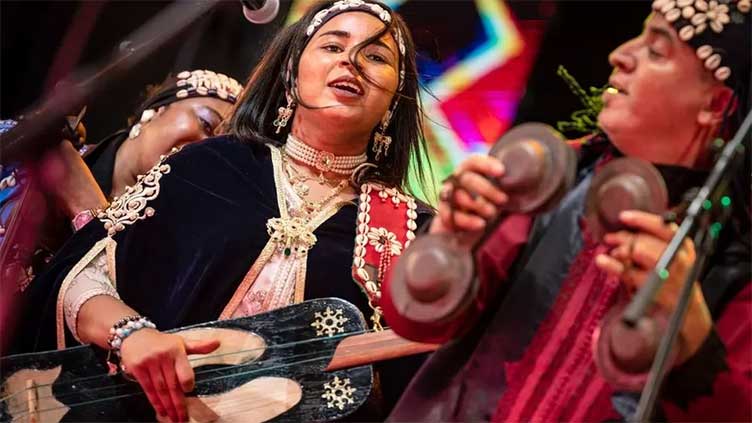Gnawa music: Morocco's Asmâa Hamzaoui takes centre-stage

Entertainment
Gnawa music is a Moroccan spiritual musical tradition developed by descendants of enslaved people
(Web Desk) - Combining ritual poetry with traditional music and dance, the Gnawa master is centre-stage, playing the main guitar-like instrument, the ghembri.
The Gnawa master was always a man in the deeply patriarchal society, but that changed when Asmâa Hamzaoui came on to the scene.
Her father - a Gnawa master - had hoped to pass the tradition of playing the ghembri to a son.
But Rachid al-Hamzaoui only had daughters - including one particularly mischievous but talented one.
And so Hamzaoui ended up breaking the mould. Today, she is a star of Gnawa - long a marginalised culture of street musicians and beggars that is now acquiring a growing following in Morocco, and around the world.
She made her stage debut in 2012 at the annual Gnawa music festival in the southern coastal town of Essaouira - the cultural heartland of the Gnawa people.
"It was a huge responsibility. First, because of the instrument - it was my father's. I needed to play the same good songs he had taught me. I needed to play them correctly," Hamzaoui said, as she headlined again at this year's festival.
"And it was scary - the first time a woman on the stage, playing Gnawa music, representing women."
There are no records of the number of Gnawa people in Morocco, but their history can be traced back to at least the 16th Century slave trade.
In 2019, the UN cultural agency Unesco listed their culture and music as an "Intangible Cultural Heritage of Humanity".
"Gnawa is first and foremost a Sufi brotherhood music combined with lyrics with a generally religious content, invoking ancestors and spirits," Unesco says.
It says that Gnawa culture is now considered part of Morocco's multifaceted culture and identity.
"The Gnawa, especially in the city, practise a therapeutic possession ritual through all-night rhythm and trance ceremonies combining ancestral African practices, Arab-Muslim influences and native Berber cultural performances," Unesco adds.

